Unity College 2019 graduates: Be prepared for change
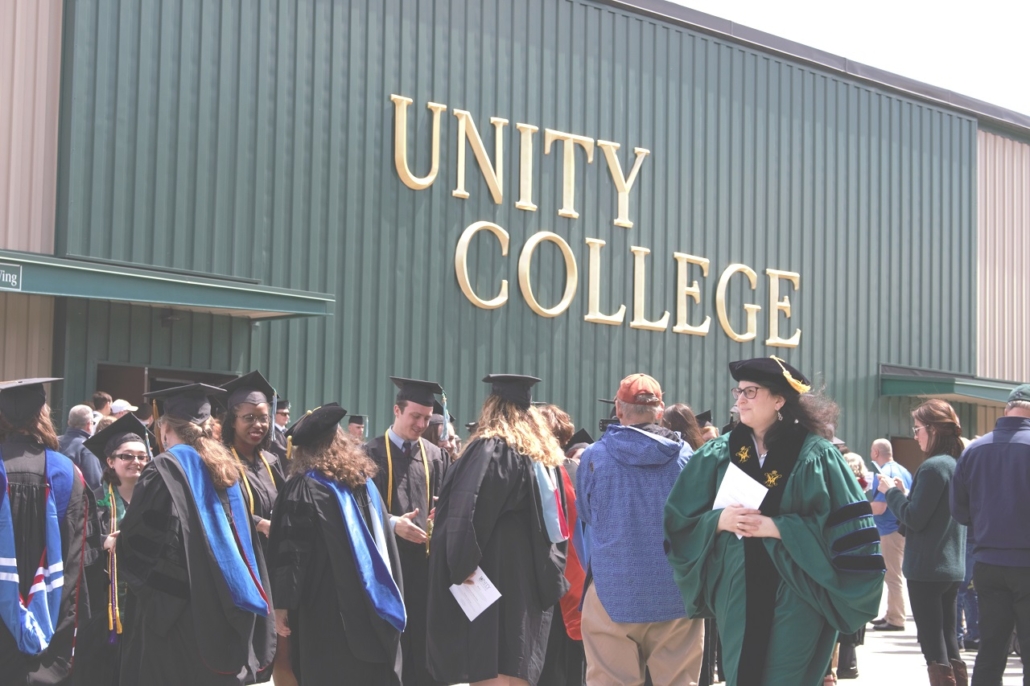 by Jeanne Marquis
by Jeanne Marquis
The theme heard at the Unity College graduation ceremony, on May 11, 2019, was the importance of being prepared for the changing world ahead. New graduates will need to do more than survive change but lead the way for others. Those who will thrive, in the decades to come, will fearlessly embrace challenges by having a deep understanding of the world and possessing the unique skills to solve 21st Century problems.
Unity College President Melik Peter Khoury announced to the 130 graduates of Unity college and their families: “Class of 2019, you have the foundation and the pedigree needed to take the next steps into this challenging green economy on a global scale. And I speak for all of us here at Unity College when I say that we cannot wait to see what those next steps are. Please, share your stories, share your successes and share your adventures.”
Retired United States Army Staff Sergeant Travis Mills delivered the 2019 Commencement address and was bestowed with an honorary doctorate in sustainability sciences. While on patrol in April 2012, SSG Mills was critically injured by an IED on his third tour of duty in Afghanistan. He is one of only five quadruple amputees who survived from the wars in Iraq and Afghanistan. His inspiring spirit turned his overwhelming challenges into success. After his hard road to recovery, he established the Travis Mills foundation to help other wounded veterans and wrote a New York Times best seller, Tough as They Come. Travis Mills, with a sense of humor, encouraged the graduates to embrace their own challenges – “I had one really bad at work. Then, I went on to have seven fabulous years since that day.”
The philosophy of embracing change has been deeply ingrained in Unity College since its establishment in 1967. The college founder Bert Clifford envisioned that building a college would secure their town’s future in an era when rural towns were declining nationwide. Clifford’s vision came to fruition with a college that serves the local region and attracts students nationwide.
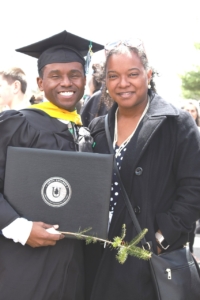
Raymond Hall, a 2019 recipient of a master’s degree, selected Unity College Online after his own intensive search He found the academic rigor to be competitive, and the online format worked with the demands of his position as a safety specialist of environment protection at University of Texas — MD Andersen Cancer Center, in Houston, Texas. (photos by Jeannie Marquis)
In recent years, Unity College also demonstrated resilience and embraced change. The college leaders’ keen ability to forecast future global needs transformed Unity college into America’s first environmental college.
All areas of study at Unity College blend academic rigor with hands-on field work and a goal of teaching students to translate their knowledge into sustainable solutions. Among their majors are Sustainable Agriculture, Biology, Marine Biology, Captive Wildlife Care and Education, Parks and forest Resources, Environmental Writing and Media studies, Wildlife and Fisheries Management, Sustainable Energy Management and Conservation Law Enforcement.
Nolan Allen, a 2019 graduate with a degree in Conservation Law Enforcement, has accepted a position as an officer on the Fairfield Police Department. Allen chose Unity College because of the flexible law enforcement major that provides him with a variety of career options. He appreciated the low student to faculty ratio, 15 to one, which gave him the chance to get to know his professors.
Recognizing a growing need for distance education, college administrators once again embraced this change and developed Unity College Online offering bachelor’s, master’s and non-degree credits. Distance education provides the flexibility, while maintaining the same high standards to reach out to professions who seek to advance their careers. Unity College Online is fully accredited and most of the online faculty are fulltime faculty or are leading experts in their fields. The online capability provides Unity College to reach students globally and provide students with more diverse field experiences.
Raymond Hall, a 2019 recipient of a master’s degree, selected Unity College Online after his own intensive search. He found the academic rigor to be competitive, and the online format worked with the demands of his position as a safety specialist of environment protection at University of Texas—MD Andersen Cancer Center, in Houston, Texas. Hall says the emphasis on problem-solving throughout the the college course work has prepared him well for challenges that lie ahead.
Responsible journalism is hard work!
It is also expensive!
If you enjoy reading The Town Line and the good news we bring you each week, would you consider a donation to help us continue the work we’re doing?
The Town Line is a 501(c)(3) nonprofit private foundation, and all donations are tax deductible under the Internal Revenue Service code.
To help, please visit our online donation page or mail a check payable to The Town Line, PO Box 89, South China, ME 04358. Your contribution is appreciated!


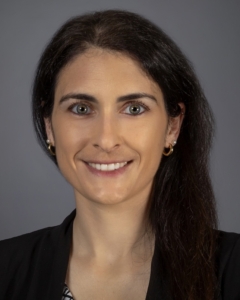
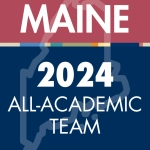
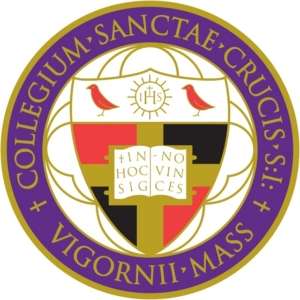
Leave a Reply
Want to join the discussion?Feel free to contribute!